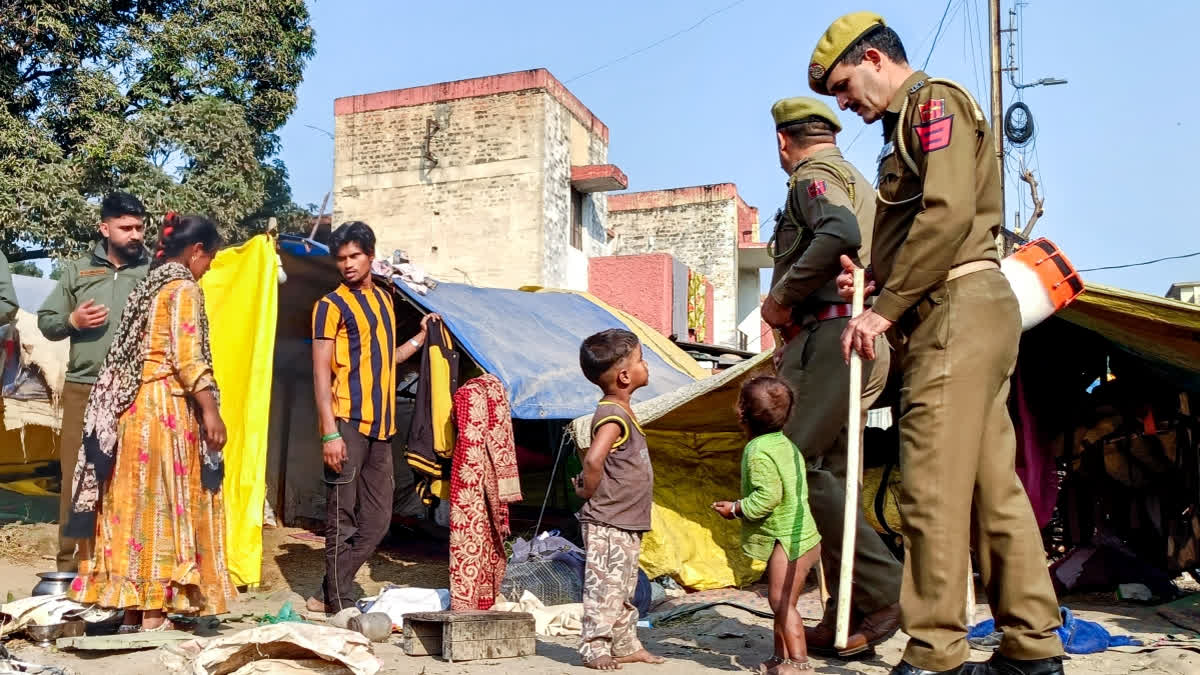Jammu:Rohingyas in Jammu are living through tough times as authorities crack the whip on persons renting out their properties to these refugees considered one of the world's most persecuted minorities.
The refugees have alleged that authorities have cut off the water and electricity supply in the temporary settlements as part of an ongoing verification process. This move follows the Jammu administration's recent directive mandating police verification for all tenants in the district.
The Rohingyas, who fled persecution in Myanmar, now fear being targeted and displaced. Several landlords accommodating the refugees have faced legal action, intensifying concerns within the community. This comes after several of these refugees were detained for allegedly violating the Foreigners Act.
Salamuddin, a Rohingya refugee residing in Jammu since 2008, shared his plight with ETV Bharat, saying, "The government has stopped water and electricity for us. We were already living in fear, and this has only worsened our situation. My mother is in Hiranagar jail along with other Rohingyas. Now, the rest of my family and I live in constant tension in the temporary huts."
"We came to India to seek refuge and save our lives. Once the situation in Myanmar normalizes, we will return. We do not wish to stay forever in Jammu or India, but we urge the Indian government to treat us with humanity and restore water supply and electricity," he said.
Water Minister Says 'Supply Will Be Restored on Humanitarian Basis'
Speaking to ETV Bharat, Jal Shakti Minister Javed Ahmed Rana said he has issued instructions to officials to restore the water supply to the settlements on “humanitarian grounds.” "Stopping water and electricity supply isn’t the right step. With regard to the water supply, I’ve given directions for immediate restoration. The issue of Rohingyas is an issue and the government is thinking about it but water supply can’t be stopped," he said.
According to government data, more than 13,700 foreigners, most of them Rohingyas (illegal immigrants from Myanmar) and Bangladeshi nationals, are settled in Jammu and other districts of Jammu and Kashmir.
In March 2021, police found over 270 Rohingyas, including women and children, living illegally in Jammu city during a verification drive and lodged them in a holding centre inside the Kathua sub-jail.
Ajay Sharma, Senior Superintendent of Police, City South Jammu, told ETV Bharat that they had issued a statement on Rohingya refugees a week before, and their stand "remains the same".
On November 25, Sharma said a total of 18 FIRs were registered in a major drive against the landlords renting out their properties to Rohingyas and other illegal immigrants without providing information to police as per the order of the district magistrate.
The police officer had said that four Rohingya refugees were detained for alleged violation of the Foreigners Act as more landlords were booked for renting out properties to them without informing the police.
The civil administration has also launched a drive to identify the people who facilitated electricity and water connections to plots housing Rohingyas, Ajay Sharma said.
Rohingya Refugees Seek Release Of Prisoners
Rohingyas, meanwhile, also seek the release of several refugees detained in the Hiranagar jail. Many were detained in 2021 under India’s Foreigners Act, as authorities carried out crackdowns on undocumented migrants. Families of the detainees argue that they have been unfairly imprisoned and demand their release, citing humanitarian reasons.
Community members feel increasingly vulnerable, with some accusing authorities of unfairly profiling them. “We left Myanmar to escape violence, but here too, we feel unsafe,” said a Rohingya refugee, seeking anonymity. He urged the government to handle the issue with sensitivity and ensure the rights of the Rohingya refugees under UN Refugee law.
Despite holding refugee cards issued by the United Nations High Commissioner for Refugees (UNHCR), several Rohingyas have been detained and are being held in Hiranagar jail since 2021.
